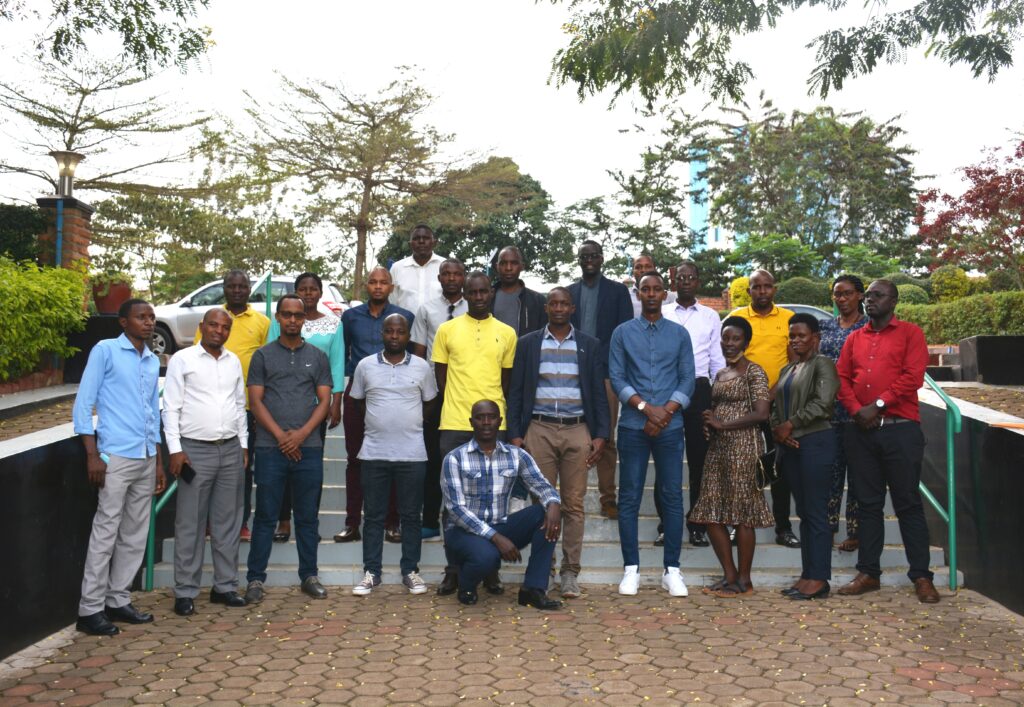
Jesuit Urumuri Centre has re-launched the AJAN HIV&AIDS prevention program for the youth during an occasion marked by gathering the AHAPPY generation mentors for a refresher training on the program at the premises of JUC.
The AHAPPY program was initially launched in 2019 and was implemented in Rwanda to combat school drop-outs caused by HIV&AIDS infections, teenage pregnancies and drug abuse among the youth. The program’s modules include chapters such as; awakening to myself, facing a world with HIV&AIDS, and developing skills to know and live with oneself as well as with others.
Before the initial launch of the program in 2019, JUC selected 13 secondary schools in the Archdiocese of Kigali and invited their directors for a one day training to introduce the program to them. This was followed by the selection of 2 teachers from each school that were then taken through a 10 day training of trainers on the manual of the program.
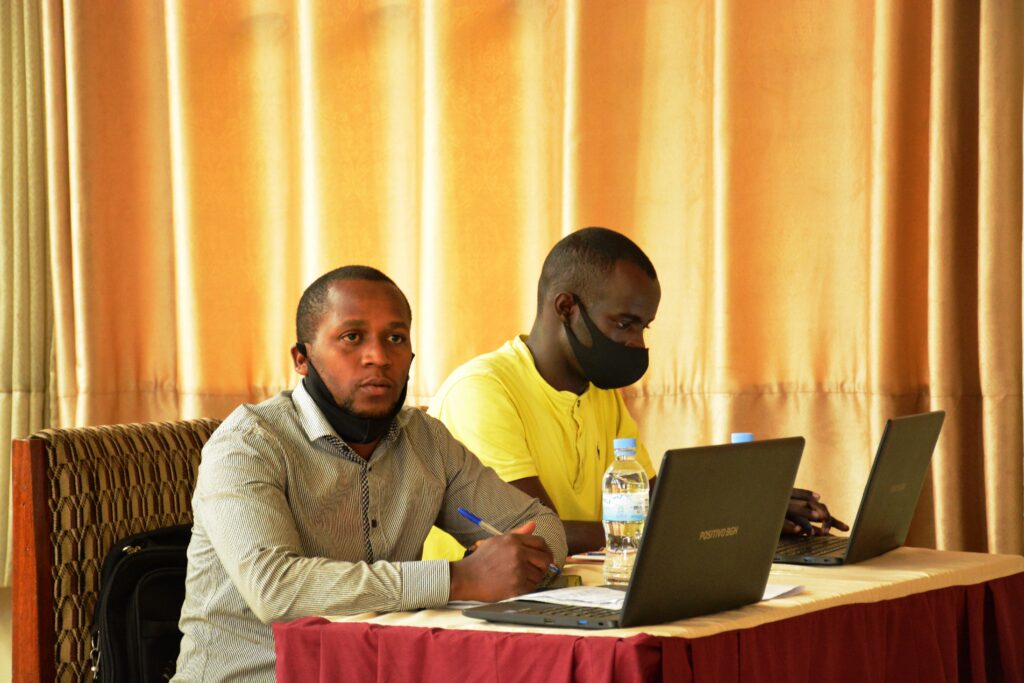
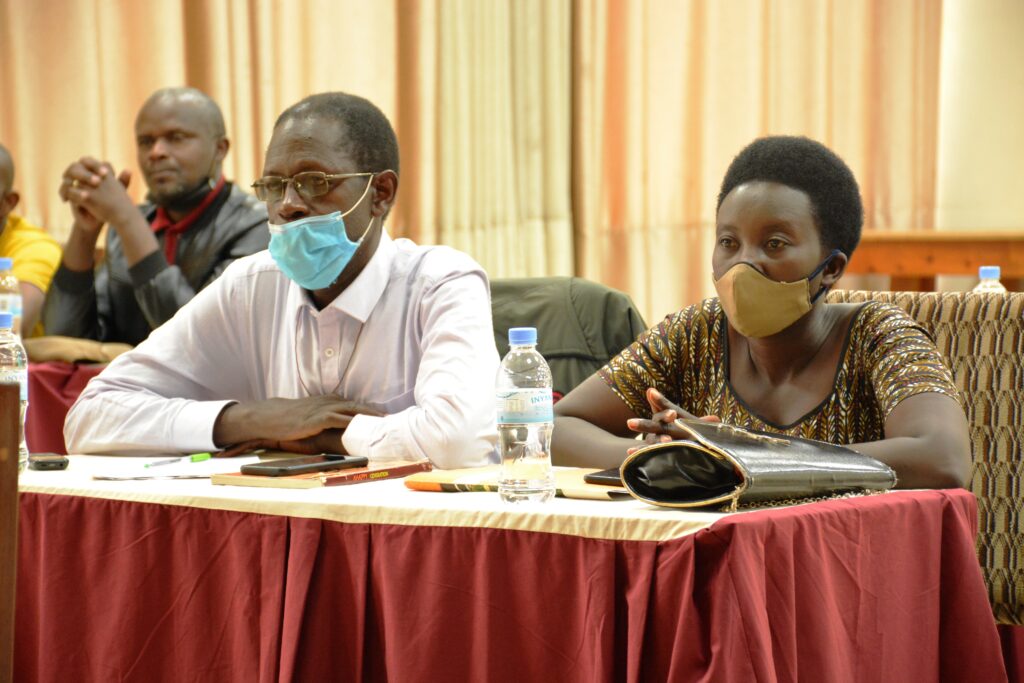
The mentors formed these AHAPPY clubs and had started teaching the manual during the 1st term of 2020, when schools were closed to contain the spread of the COVID-19 pandemic among students. When COVID-19 regulations were partially lifted, students were still not allowed to gather for such things as clubs at their schools. The program was consequently suspended as the Centre strategized on how to re-launch it during these uncertain times.
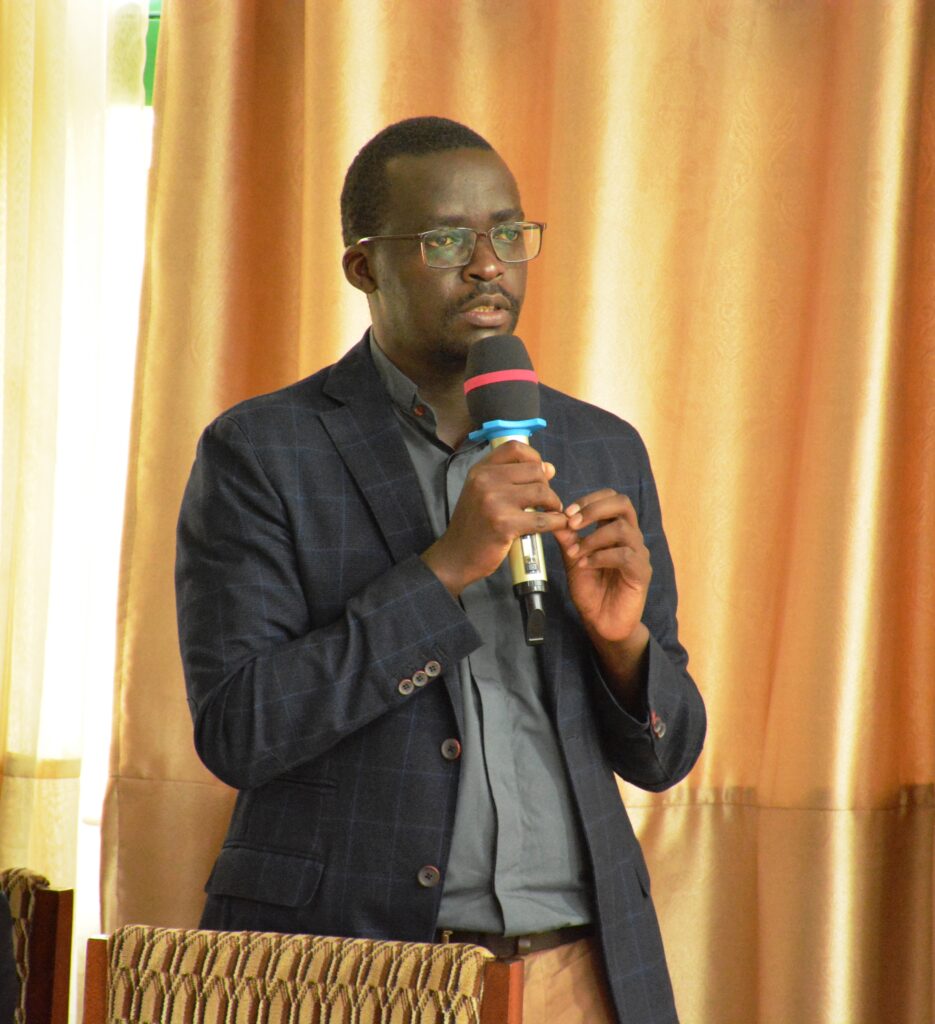
Fr. Ernest Ngiyembere, SJ
On Friday 28 January 2022 JUC director Fr. Ernest Ngiyembere, SJ addressed AHAPPY mentors thanking them for taking the time to attend the refresher training; “As you well know, teachers are an integral part of any child’s growth and success. We are charged with the very important task of imparting values and life skills such that, when they move on from under our supervision, they have a foundation which they use while navigating the course of the rest of their lives.”
He added that the AHAPPY program has a uniqueness to it in that its manual is meant to motivate and equip young people with knowledge and life skills using wisdom derived from the Christian tradition to enable them to make healthy choices in all aspects of their lives; “The three most important goals to be attained from teaching the AHAPPY manual is that our youth will be equipped with the right information, they will be made aware of the challenges and distractions that they will face in day to day life, and finally they will become responsible youth who make the right decisions for their futures.”
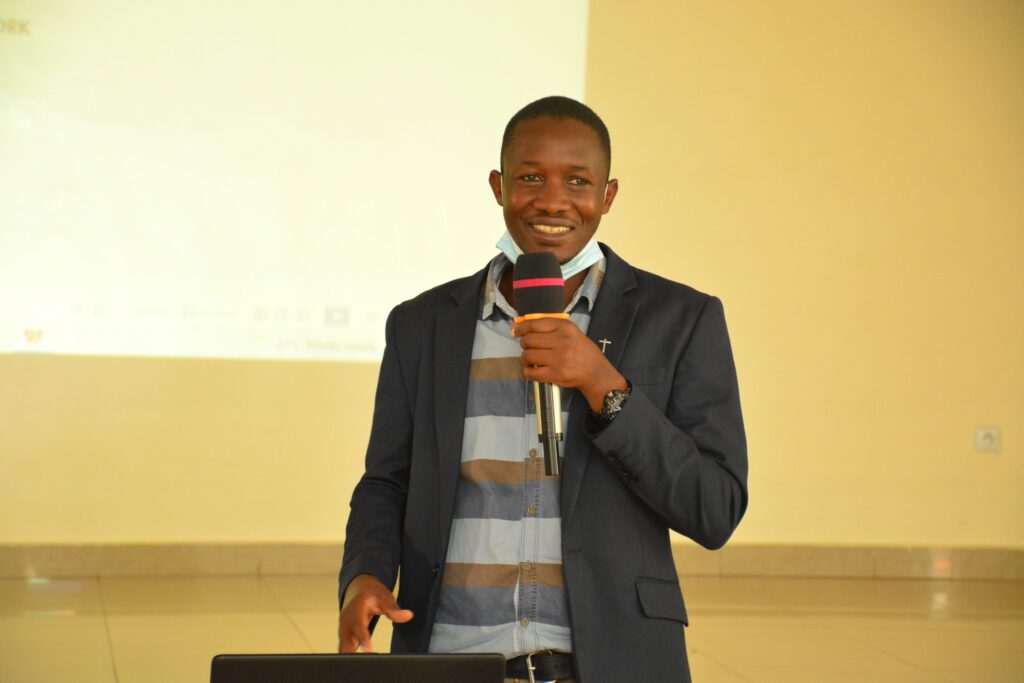
Pierre Nyandwi, SJ
JUC assistant director, Pierre Nyandwi, SJ, presented the full day training going through points on why the program is integral in moulding the youth, so that they are able to make informed and responsible choices, leading to blossoming and successful social lives and in an AIDS free generation. Pierre also laid out an action plan on re-implementing the program in schools.
As many members of the original AHAPPY clubs have graduated or shifted from their schools and moved on, the teachers were tasked with forming new clubs or mobilizing other students to join the clubs.
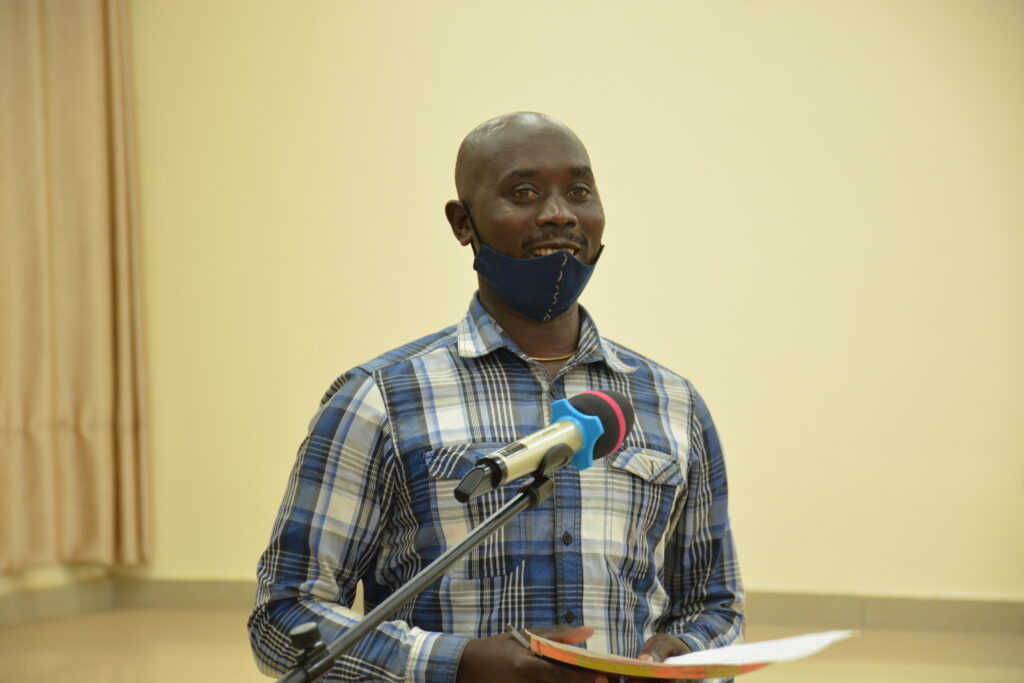
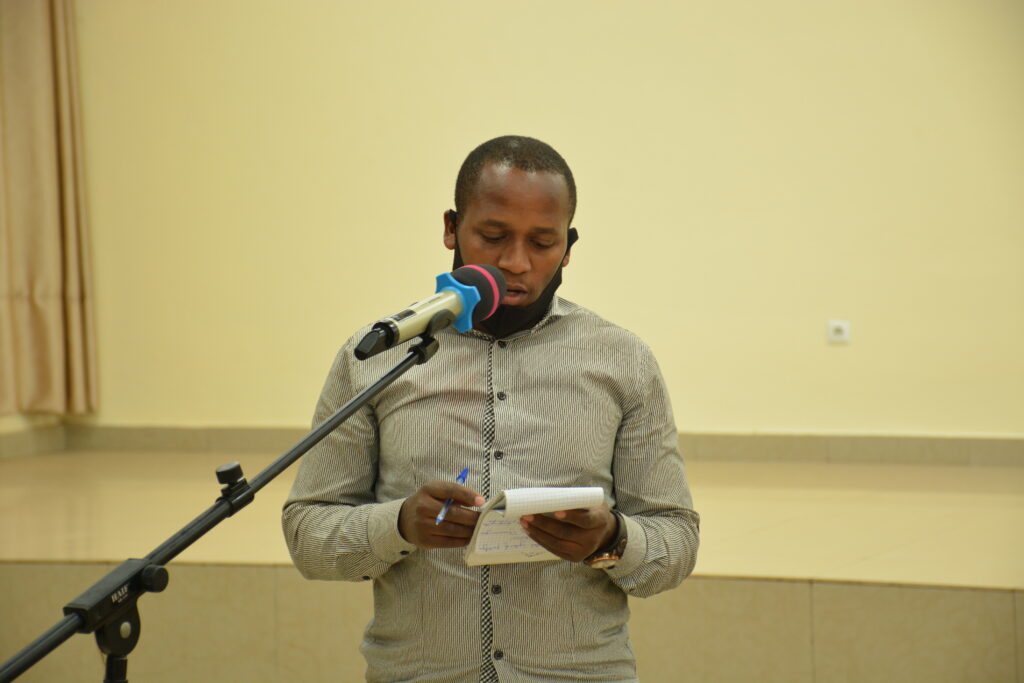
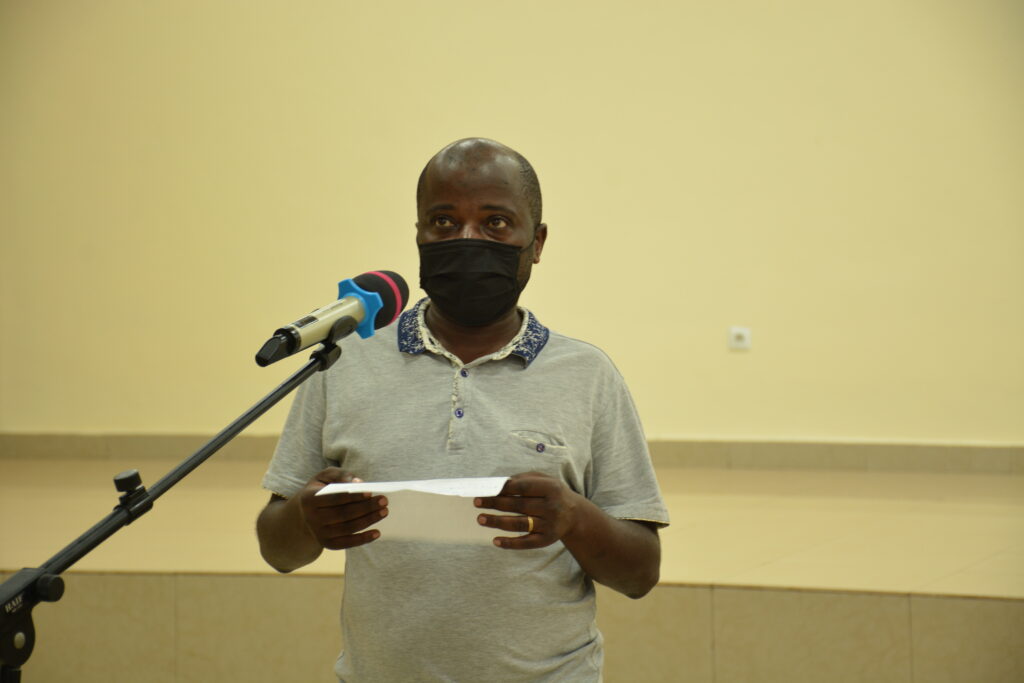
Pierre concluded the training by speaking about Ignatius500 and about the 20th anniversary of AJAN. He asked mentors to encourage AHAPPY club members to take part in a writing completion that AJAN has set up to commemorate the AJAN anniversary.
The aim of the competition is to provide an opportunity or space for the youth, through writing, to explain their understanding of the reality of HIV & AIDS as it relates to their lives, experiences or of society in Africa. “I ask you to guide your students in writing the essays, help them to find ideas either on the internet or from any other source, help them to digest the ideas and help them to write the ideas in their own understanding, help them present researched and inspired work.”
The goal of these competitions is to invite the winners of essays to transform their essay into scripts to produce educative movies to make part of the teaching material for AHAPPY.
Henriette Mushimiyimana
JUC Communication Officer










